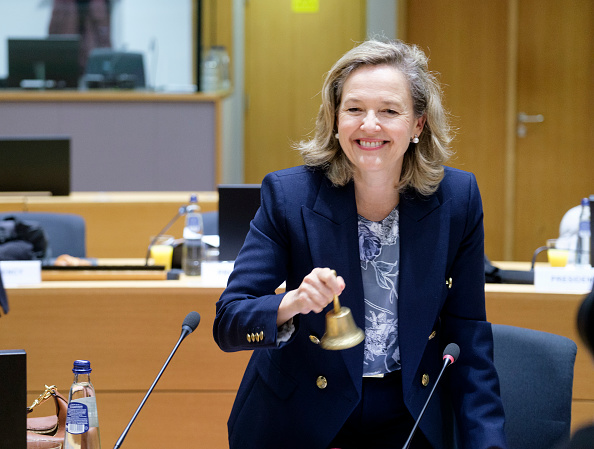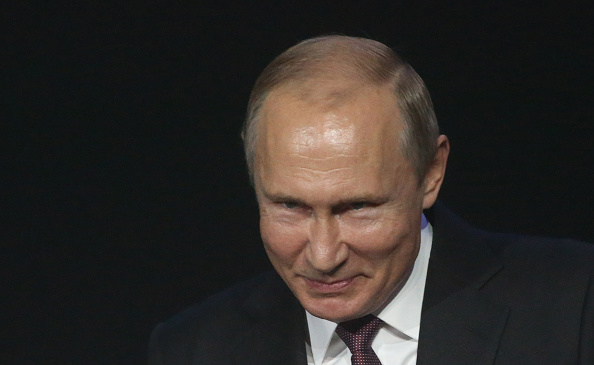Amid dire times at the ballot box, the European Union’s centre-left parties are increasingly looking to Denmark’s Prime Minister Mette Frederiksen for answers.
The European Parliament’s centre-left Socialist & Democrats (S&D) group saw 154 MEPs elected in 2019. Now it faces exiting the June 2024 Parliament vote with as few as 136 MEPs, according to March polls.
Frederiksen, a Scandinavian Social Democrat, has defied this trend of political freefall. She now finds herself as one of just five S&D heads of government across the European Union — Germany’s Chancellor Olaf Scholz, Malta’s PM Robert Abela, Portugal’s PM António Costa and Spain’s PM Pedro Sánchez being the only others.
She also finds herself topping the polls in Denmark. While her share of the vote has declined somewhat, she remains comfortably ahead of other groups on both the left and right, currently leading her closest rival — the Liberal Alliance — by seven points.
What is behind such success? It is hard to say for absolute certain. But Frederiksen’s pro-border control approach certainly appears to be central.
While other left-wing politicians across Europe continue to push for a soft-touch approach to immigration, Frederiksen has openly told her Parliament that her goal is to accept zero asylum seekers.
“We must take care that not too many [refugees] come to our country,” she previously said. “Otherwise our social cohesion could not exist”
This approach has left little room for the hard-right in Denmark to make any meaningful political headway using the issue.
The anaemic fortunes of Denmark’s right-wing parties — the Danish People’s Party, Denmark Democrats, and the New Right — reflect this.
Oxford Analytica’s Niall Walsh told Brussels Signal the Danish People’s Party “had success earlier than their Finnish and Swedish counterparts”, obtaining “13 per cent of the vote in the 2005 elections, 14 in 2007 and 21 in 2015, their high point when the party came second”.
Denmark’s Prime Minister Mette Frederiksen has announced her Government will begin drafting women alongside men to its armed forces. https://t.co/bMSzFVDAgo
— Brussels Signal (@brusselssignal) March 15, 2024
Since Frederiksen took office in 2019, however, “support for the nativist right in Denmark has been in decline”.
In the 2022 elections, the Danish People’s Party “received just 3 per cent, below the newly formed anti-immigrant Denmark Democrats”, on 8 per cent, Walsh added.
Whereas the Sweden Democrats are today the second-biggest party in Sweden, boasting 72 Riksdag seats of 349 and gathering 21 to 23 per cent of support in January and February polls, the similarly modelled Denmark Democrats now manage just 14 seats out of 179 and poll at a relatively paltry 7-8 per cent.
The populist New Right party, set up in 2015 by Pernille Vermund to espouse stricter controls on immigrants and a Danish withdrawal from the EU (“Dexit”), announced in January it was winding itself up.
For Frederiksen, this appears to be a lesson. During an interview with the Financial Times, she urged centre-left governments to remember that the working classes pay the price for downsides of crime and levels of immigration that are higher than a country can absorb.
“An unsafe society is always a bigger challenge for people without a lot of opportunities. If you have the money, you will always be able to defend yourself,” she said.
Frederiksen has also taken a more hawkish stance when it comes to Denmark’s national defence. Once touted as a possible head of NATO, on February 18 she announced Denmark was donating its entire artillery stockpile to Ukraine.
She has even turned her ire on other EU leaders over the issue, openly criticising a “naive” Europe that spends “excessively” on welfare instead of ramping up its funding for defence.
The Danish PM’s success has not gone unnoticed, with other centre-left parties across Europe having begun to take pages of her policy recipe book.
On February 27, Scholz hailed a “historic” cross-party deal to scale back welfare benefits for refugees and set targets to hasten deportations of some immigrants.
Scholz’s announcement came as his German Social Democrats sought to neutralise the rise of the populist Alternative für Deutschland (AfD) party, which around one in five Germans now say they support according to recent polling.
Francis Shin of the US think-tank Atlantic Council said he felt that, for Frederiksen’s Danish Social Democrats, the greatest political danger appears to come not from the country’s hard Right but, rather, from the possibility she will be promoted to the position of president of the European Council, forcing the Democrats to search for a replacement.
Joachim Gauck said there is a loss of control at the borders and praised the Danish approach as an example of how the situation should be handled. https://t.co/bMpWF8YV0V
— Brussels Signal (@brusselssignal) September 19, 2023





